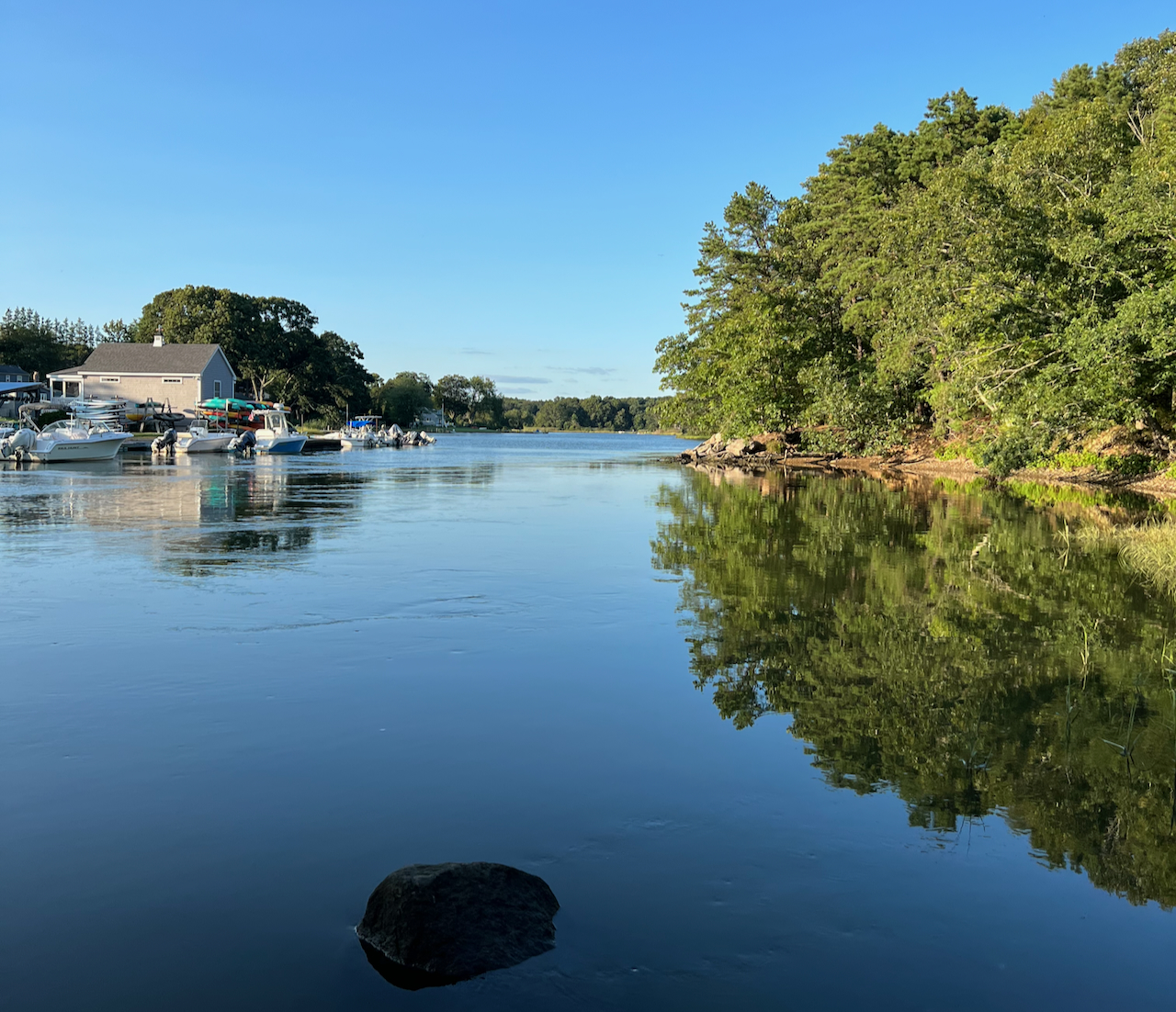
Photo by John Griswold
“Everybody’s off on their own trip,” as they said in the sixties. It is still a useful phrase, especially in a personal, interior sense. It points to the difficulties of perception and communication.
I have completed an epic, 3,800-mile trip from the Midwest to the East Coast and back, on behalf of The Common Reader. I think a number of essays will come of it. For me, it was also a pilgrimage, a celebration of friendships, a test of new freedom—both my sons are in college now—and a possible last lap for certain things. You never know, my mother-in-law used to say, you are getting to be a certain age. We are all always getting to be a certain age, darling, and as the old joke goes, What is the alternative? Time to use our time.
The trip took me through cities and towns, across rivers, over mountains, into the maze of Manhattan, on a D-Day LST used as a car ferry, and down the coast to Baltimore, Annapolis, and past the Tidewater to the Carolinas.
Sometimes I start to feel as if there may not be many places that can truly surprise me anymore, but the Delaware Water Gap and Long Island contained unexpected beauty. Many times I was driving along, thinking about something, and did not know or care exactly where I was, so I had to laugh once driving on a little two-lane road, crops on both sides, middle of nowhere, and the GPS said loudly, Welcome to Maryland. It was good to see places on the outer boundaries of other places I used to know, such as an area west of the Chesapeake and south of the James River, marked only by light green cut by state roads on the maps, west of the military-industrial complex at Norfolk where I had lived for a time.
This sounds like something Steinbeck probably said in Travels with Charley, but our country is still out there, still beautiful. Because I was not familiar with how many of these places used to look, I could not detect the large-scale effects of climate change, and it was odd to realize again that the American landscape seems mostly unoccupied. I no longer felt the need to stop to take photos at every turn—at a sign for the Gunpowder Baptist Church, for example—because social media seems beside the point, and besides, there is too much that is interesting, funny, or significant. I just experienced and was happy, because the United States endures despite it all.
I got to see old friends, including a former colleague who shares a love for Chekhov; two men I served with in the Army; one of my own professors, who helped direct the course of my life; and someone from my hometown, who had been only a Facebook friend to now. They put me up for the night—making the trip possible—fed me, introduced me to new topics for my work, and discussed old matters and new. There is little as quietly meaningful as friendships of forty years. On the southern coast of Connecticut I visited the graves of my ancestors from the seventeenth century.
I always thought I would reach a point where I could relax into long trips, especially if I was setting my own pace. But I am usually like a swimmer in deep water, pacing myself to make sure I have what is needed to make it to safety, and I am always anxious about money. (A busted fuel pump on the Ed Koch Bridge confirmed the rightness of these anxieties.) For better and worse, travel has an emotional component. We see better when we do it, until fatigue and familiarity roll in like fog. The emotion of the new is also why slide shows of family vacations used to be dreaded and feared—because the reasons for the emotions often did not communicate themselves onscreen.
Italo Calvino writes in Six Memos for the Next Millennium that “there is such a thing as a lightness of thoughtfulness, just as we all know that there is a lightness of frivolity. In fact, thoughtful lightness can make frivolity seem dull and heavy.” This, I think, is the contentment of certain modes of travel.
